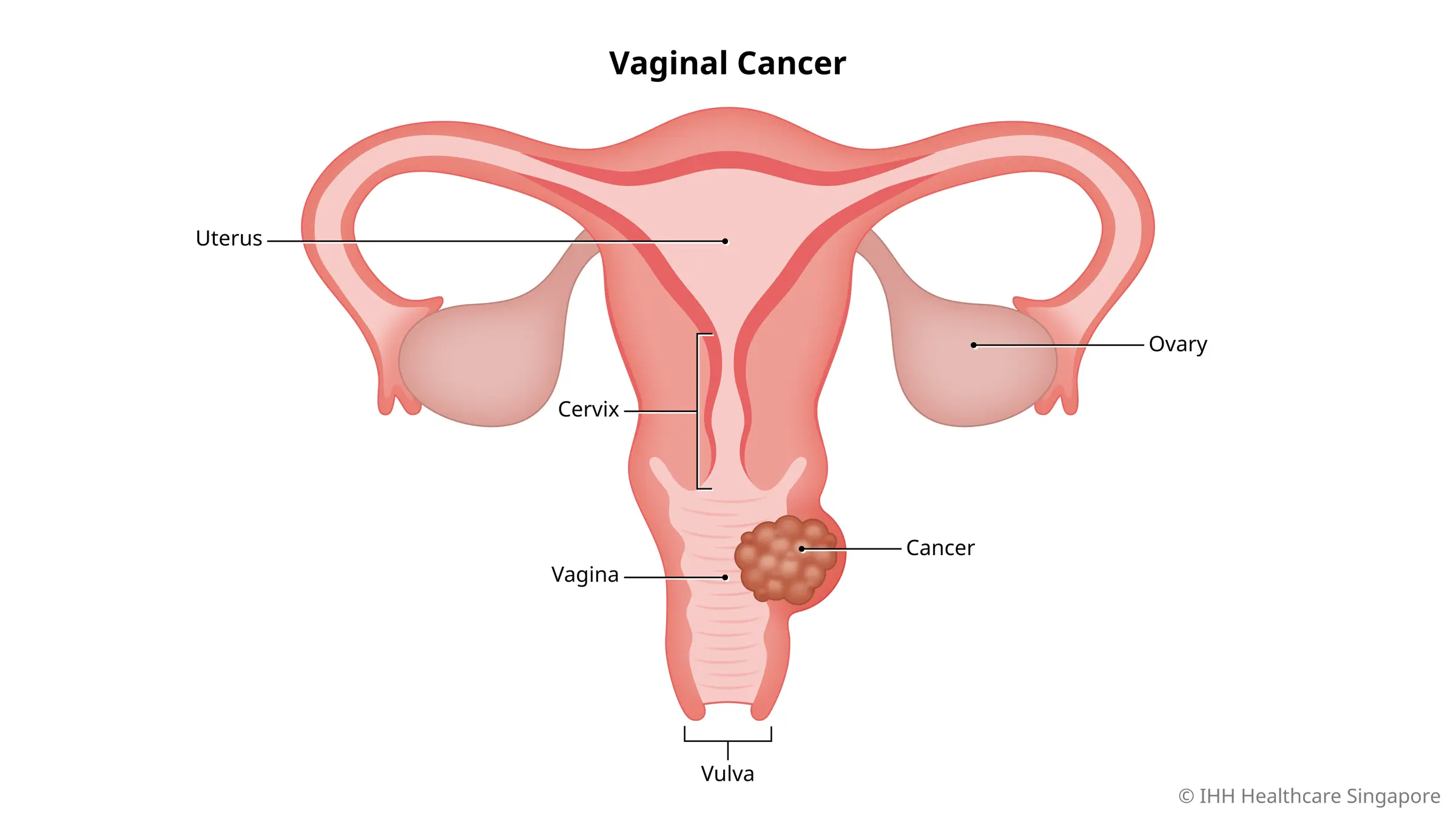
Vaginal Cancer
What is vaginal cancer?
Vaginal cancer occurs when cancerous cells grow in the vagina. The vagina is a muscular tube that starts at the cervix (lower part of the uterus), and opens at the vulva (outer part of the female genitals).
Though it is possible for different types of cancers to spread to the vagina, vaginal cancer (that begins in the vagina) is rare.
Types of vaginal cancer
There are different types of vaginal cancer depending on the type of cells where the cancer began:
Squamous cell carcinoma
This is the most common type of vaginal cancer. It develops in the squamous cells that line the vaginal surface. Squamous cell carcinoma develops very slowly and is usually seen in women above 6o years of age.
Adenocarcinoma
It starts in the glandular cells in the lining of vagina and tends to spread to nearby tissues and organs.
Clear cell carcinoma
It is a very rare form of adenocarcinoma that affects women whose mothers used a synthetic estrogen, diethylstilbestrol, in early pregnancy to prevent miscarriage and other complications.
Vaginal melanoma
It is a very rare type of cancer that develops in the melanocytes or pigment-producing cells of the vagina.
Vaginal sarcoma
It develops in the bone and muscle cells of the vagina, and is very rare.
What are the symptoms of vaginal cancer?
Initially, vaginal cancer may not present any symptoms. However, as it progresses, you may experience the following symptoms:
- Unusual vaginal bleeding, after menopause or after intercourse
- Watery or smelly vaginal discharge
- A lump in your vagina
- Pain or bleeding during sexual intercourse
- Painful or frequent urination
- Pelvic pain
What causes vaginal cancer?
Some cases of vaginal cancer do not have a clear cause. Others may be due to:
- Human papillomavirus (HPV). Most cases of vaginal cancer are associated with HPV infection, a common sexually transmitted disease. If an HPV infection persists for a long period of time, it may lead to vaginal and cervical cancer.
- Herpes simplex virus (HSV). It is also associated with a higher risk of vaginal cancer.
- Diethylstilbestrol. Women whose mothers had this synthetic estrogen during pregnancy are at a greater risk of developing clear-cell adenocarcinoma of the vagina than other women.
What are the risk factors for vaginal cancer?
People who have had cervical pre-cancer and cervical cancer are at high risk of having vaginal cancer.
Other risk factors include:
- Increasing age. The risk of vaginal cancer increases with age. Most people diagnosed with vaginal cancer are older than 60 years.
- Weakened immune system. Conditions like the human immunodeficiency virus (HIV) or lupus are associated with greater risk of vaginal cancer.
- Atypical cells in the vagina called vaginal intraepithelial neoplasia (VAIN). VAIN is mostly caused by HPV infection. A woman diagnosed with this has vaginal cells that do not appear normal, and some women may eventually develop vaginal cancer.
Other risk factors associated with a risk of vaginal cancer include:
- Smoking
- Heavy alcohol intake
- Having multiple sexual partners
How do you prevent vaginal cancer?
There is no proven way to prevent vaginal cancer. However, there are certain steps you can take to reduce your risk:
- Regular pelvic exams and Pap tests. By having routine pelvic exams and Pap tests, your doctor may detect vaginal cancer early.
- HPV vaccination. By getting vaccinated against HPV, you can reduce your risk of vaginal cancer.
- Quit smoking and drink alcohol in moderation. Both smoking and alcohol are lifestyle risk factors for cancer.
This coverage checker is brought to you by Health Insured, an online resource that helps you understand your health coverage in Singapore.
This page has been reviewed by our medical content reviewers.
Need help?
For enquiries, please call
+65 6250 0000 (Orchard) or +65 6898 6898 (Novena)
For appointment bookings, please WhatsApp
+65 8111 7777 (Orchard) or +65 8111 5777 (Novena)
 Brain & Spine Care
Brain & Spine Care








